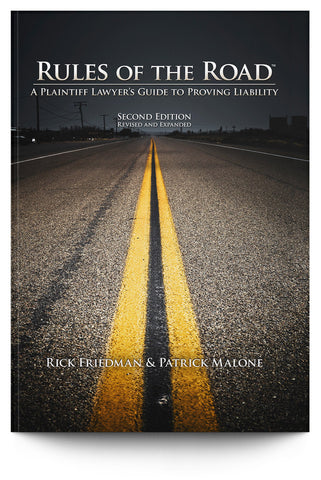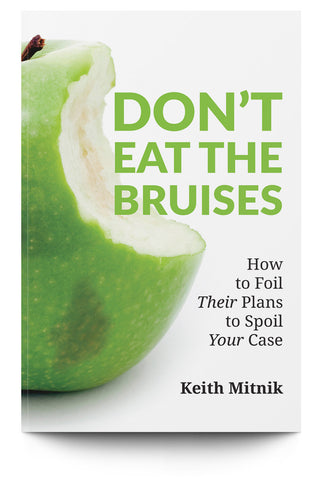Trial Guides wishes to congratulate Phil Hall (Pensacola, FL) and co-counsel Chris Crawford on their recent $4 million verdict. Hall was primary counsel on a traumatic brain injury case based in Santa Rosa County, Florida. He picked the jury, presented the opening and closing statements, and both he and Crawford conducted the direct examination of both expert and lay witnesses, including the plaintiff.
Case Details
The plaintiff in this case was a specialty truck driver for Santa Rosa County. For more than twenty years, he had driven a special kind of equipment called a “low boy,” which assists in loading specialty machinery—cranes, bulldozers and the like—on and off of flatbed trucks, and then along narrow roads to their destinations. Prior to the fall, he was highly skilled, kind, and focused.

A typical lowboy load configuration. (Source: Wikipedia.)
One morning, the plaintiff went to lunch with his coworkers. In the area where customers ordered their food, there was a dangerous condition beneath the tile floor that allowed water to seep up through the floor tiles. Management had been asking corporate to fix the dangerous condition, but corporate never sent anyone. Predictably, the plaintiff fell and hit the base of his skull on the knee-wall that separated the dining area from the ordering area, suffering a traumatic brain injury.
In the weeks following, he experienced severe headaches and migraines from his head injury; this led to vision issues that, over time, ended his career as a driver. Another tragic effect of the TBI was tangential speech patterns, which compromised his social life in and out of work. “The case really became about him being ostracized,” explained Hall. “[His coworkers] think he's really good at what he did, but none of them wanted to be around [him] anymore.”
The county kept him on for almost five years, but, given the physical and social difficulties his head trauma introduced, he was ultimately demoted; his final occupation was cleaning toilets and flagging traffic for the county. The indignity of his new position became a focal point for the plaintiff’s case.
Hall, with the assistance of co-counsel Chris Crawford, led the plaintiff’s team in a four-day trial in Milton, Florida: a region with a reputation for low verdicts and a distaste for pain and suffering damages. The jury was extremely conservative; all of the jurors but one of the jurors and alternates had voted Republican in the last presidential election. "‘Not in Santa Rosa County’ is a phrase we hear a lot from carriers and defense counsel,” said Hall, “so I was very reluctant to waive medicals and pursue a non-economics-only verdict. But the facts really screamed that this was a non-economics-only case to try. So we talked with our client, explained the risks and the rationale, and he trusted us.”
Trial Guides Titles In Action
While Hall has read and enjoyed many titles in the Trial Guides catalog — including Rules of the Road and Don’t Eat The Bruises—he considers Trial By Human and Damages Evolving as having anchored his strategy in this case.
Damages Evolving
“I have always borrowed heavily from David Ball's Damages, but the new Damages Evolving gave me even more guidance on the issues I saw in this case,” explained Hall. “Aaron Broussard's section on appraising damages was perfect. There was one question he suggested that I honestly didn’t think much of at first: ‘If you’re going to consider damages for mental anguish, what do you think you’d want to know?’ It actually turned out to be the most important question in jury selection.” This question provided a kind of wedge that opened up a discussion about what “damages” are—and how to evaluate them in cases, like this one, where the plaintiff does not earn a lot of money.
Damages Evolving also allowed Hall and his team to expertly address the idea of crooked adjusters. “Being in an area of the country where we get hurricanes, we always give a side-eye to appraisers,” he explains. “This gave me the idea to introduce the notion of appraisers with an agenda and those without. It seemed to put me in the jurors’ camp early on, and it was something that I would not have done well without that guidance from [Damages Evolving].”
Trial By Human
Hall also credits Nick Rowley and Stephen Halteman’s Trial By Human as a powerful lever for this high verdict. “The client's particular manifestation of his brain injury also caused me to more fully appreciate how important the essence of Trial By Human is,” he explained. “[The client’s] brain injury caused headaches, both migrainous and occipital—but the real jury connector, I think, was the tangential speech aspect of his injury.
“The fact that his new inability to have meaningful give and take with his coworkers led his coworkers to ostracize him after respecting him and his high level of skill for twenty-plus years really seemed to resonate with the jurors. Truthfully, that human loss, isolation, and loneliness was what the case was all about. Yes, he had headaches, and yes those were chronic, and yes those caused him to lose focus and to do less well at work, but without being able to truly discuss this notion of connection and isolation—as per the excellent guidance in Trial By Human—I don’t think we would have gotten such a great result in such a tough venue.”
See how these popular Trial Guides titles can transform your practice. —>

Damages Evolving by David Ball, Artemis Malekpour, Courtney Rowley, and Nicholas Rowley
Paperback/eBook

David Ball on Damages 3 by David Ball
Paperback/eBook/Audiobook

Trial by Human by Nicholas Rowley and Steven Halteman
Paperback/eBook

Rules of the Road by Rick Friedman and Patrick Malone
Paperback/eBook/Audiobook

Don't Eat the Bruises by Keith Mitnik
Paperback/eBook/Audiobook
